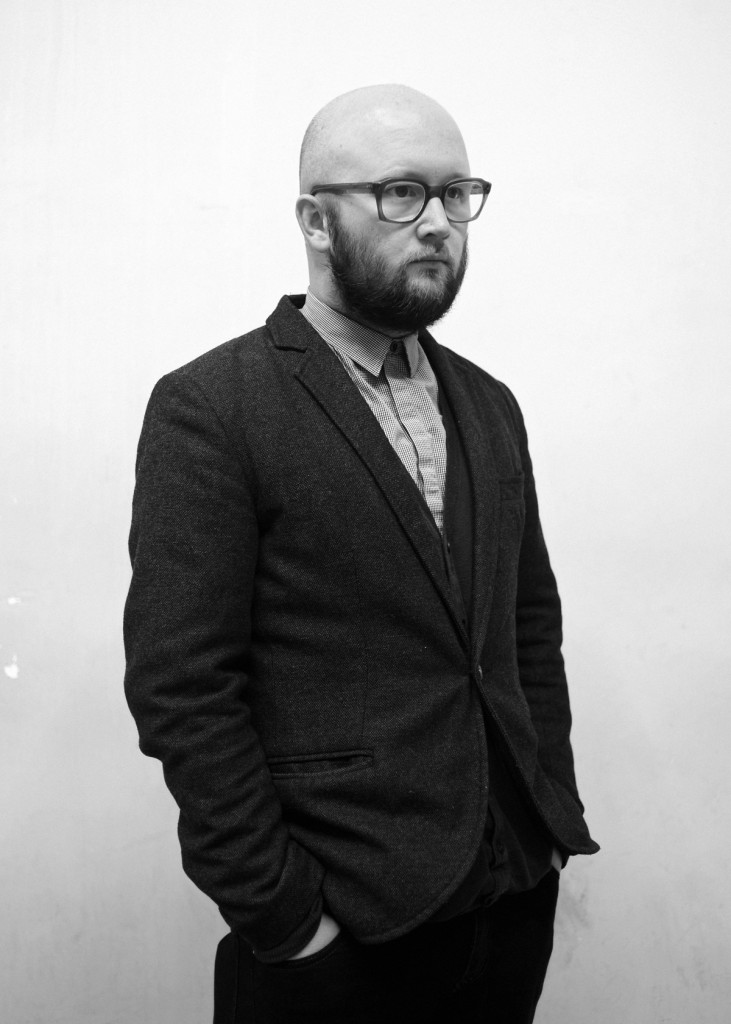
Credit: Sarah Eeckhaut
At The Cultch until October 29, 2016
604-251-1363/thecultch.com
Posted October 20, 2016
With only a few weeks to go before the gong show that is the US presidential campaign wraps up, Fight Night arrives at The Cultch. The timing could not be better or funnier or more interesting.
The set: a white square platform and a hanging microphone. The referee: bald, heavily bearded, plaid-suited Angelo – quick with the quip and the ad-lib. Two onstage computer technicians to receive and report on two screens the results from the hand-held electronic voting devices you are given upon entering the theatre.
Most of us like to think we’re independent thinkers, not easily swayed by slick marketers or rhetoric. Fight Night shows you just how vulnerable we are.
Produced by Belgium’s Ontroerend Goed, in association with The Border Project (Australia), Vooruit (Belgium), Theatre Royal Plymouth (UK) and Richard Jordan Productions (UK), it begins innocently enough. We are asked to provide information: male or female, age, income, and marital status. Nothing too personal and the results are not too surprising: 61% of the audience this night are female, 52% are single.
But then: “Ladies and gentlemen, you are ready to meet your candidates.” And the real fun begins. Five candidates enter the set: Charlotte, Michai, Aurélie, Abdel and Aaron
On the basis of absolutely nothing but appearance, we are asked to choose our favourite candidate. Will it be blond and pretty Charlotte, slightly scruffy Michai, tall and lanky Aurélie, black and dapper Aaron, or young, dark and probably Muslim Abdel?
On the night I saw the show, an astonishing 42% chose the same candidate on the basis of appearance alone. Then each candidate gets a chance to say why we should vote for him or her. We vote again: some losses, some gains. One declares himself the “underdog”, winning him some votes on the next round. Coalitions form, one candidate is eliminated.
The questions get more interesting; what word is most offensive to you: “faggot”, “nigger”, “cunt”, “retard” or none of those slurs. These, you begin to realize, are words each of the candidates finds offensive – but you don’t know which word/which candidate before you vote. Once you do know – and you do find out – do you change your vote? If this audience “were taken hostage” would the candidate of your choice “sneak out”, “play the hero”, “try to negotiate” or “stay calm”? What qualities do you most desire in the candidate of your choice?
What begins to emerge is that each of us chooses our candidates this evening – and, in all likelihood, at the polling booth – on the basis of our own values but sometimes completely arbitrarily. A single word or phrase can make a difference. An arrogant gesture. A screw-the-system attitude.
Are we being manipulated this night? Of course. But that’s the game and we agree to play it.
On a more sinister level, the technicians know how many people vote (or abstain) and, since the voting keypads are numbered, they know how #18, for example, voted. Do they know who holds #18?
The night I attended there was a large contingent of Magee Secondary School students. Clearly they were under 20 and earned little. Their numbers skewed the results in a really interesting, almost frightening way. Some of them might be able to vote in the next provincial election but, based on Fight Night calculations, might choose not to vote. Where are democracy’s watchdogs then?
Fight Night is definitely food for thought. People lingered long in the theatre discussing how and why they voted. Those discussions included the lure but the dangers of abstention. If “Donald J. Trump”, “Hillary Clinton” and “Neither of the above” were the options on the ballot, perhaps the United States would be without a president on November 9.

